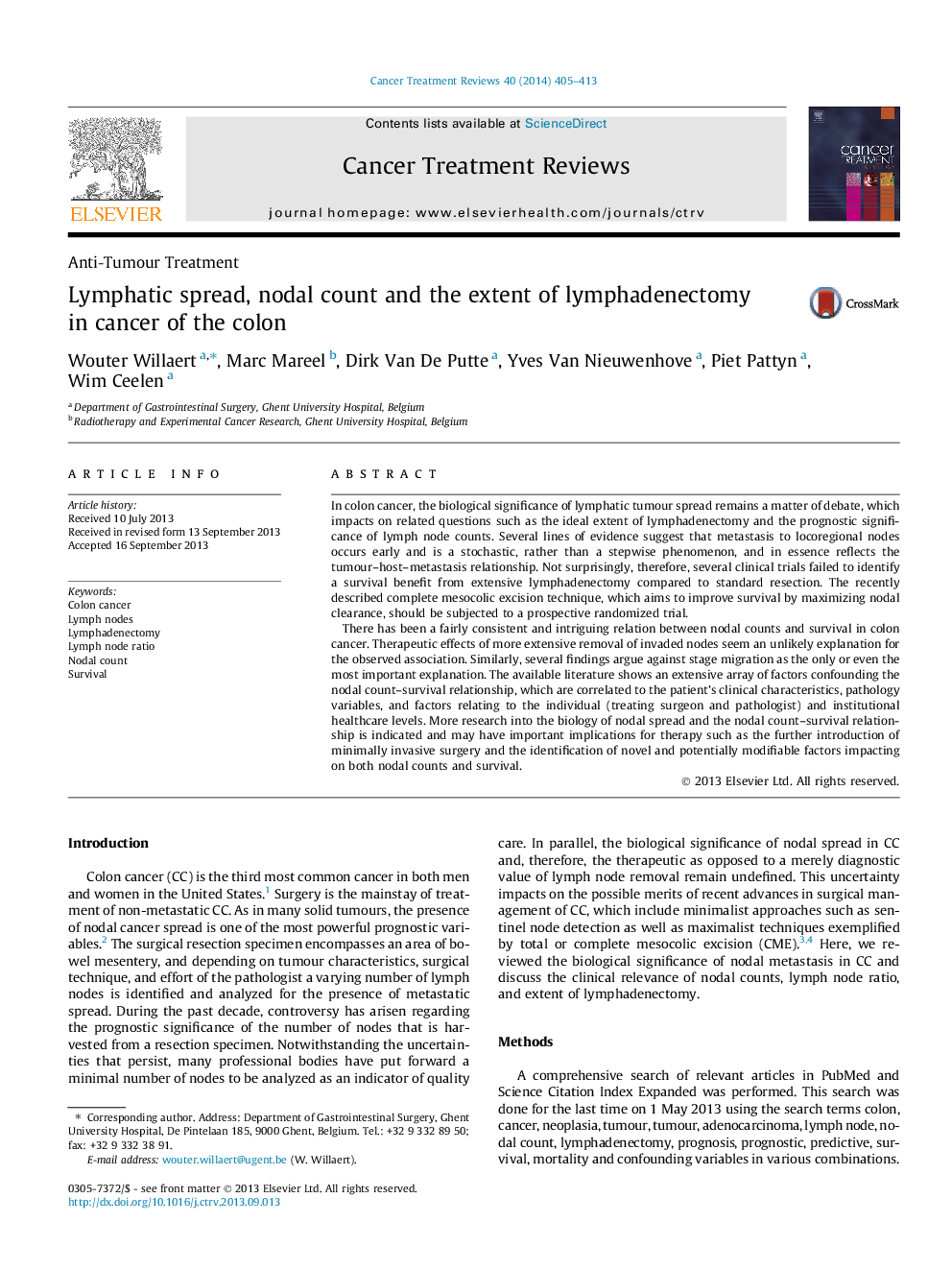| Article ID | Journal | Published Year | Pages | File Type |
|---|---|---|---|---|
| 6190616 | Cancer Treatment Reviews | 2014 | 9 Pages |
In colon cancer, the biological significance of lymphatic tumour spread remains a matter of debate, which impacts on related questions such as the ideal extent of lymphadenectomy and the prognostic significance of lymph node counts. Several lines of evidence suggest that metastasis to locoregional nodes occurs early and is a stochastic, rather than a stepwise phenomenon, and in essence reflects the tumour-host-metastasis relationship. Not surprisingly, therefore, several clinical trials failed to identify a survival benefit from extensive lymphadenectomy compared to standard resection. The recently described complete mesocolic excision technique, which aims to improve survival by maximizing nodal clearance, should be subjected to a prospective randomized trial.There has been a fairly consistent and intriguing relation between nodal counts and survival in colon cancer. Therapeutic effects of more extensive removal of invaded nodes seem an unlikely explanation for the observed association. Similarly, several findings argue against stage migration as the only or even the most important explanation. The available literature shows an extensive array of factors confounding the nodal count-survival relationship, which are correlated to the patient's clinical characteristics, pathology variables, and factors relating to the individual (treating surgeon and pathologist) and institutional healthcare levels. More research into the biology of nodal spread and the nodal count-survival relationship is indicated and may have important implications for therapy such as the further introduction of minimally invasive surgery and the identification of novel and potentially modifiable factors impacting on both nodal counts and survival.
